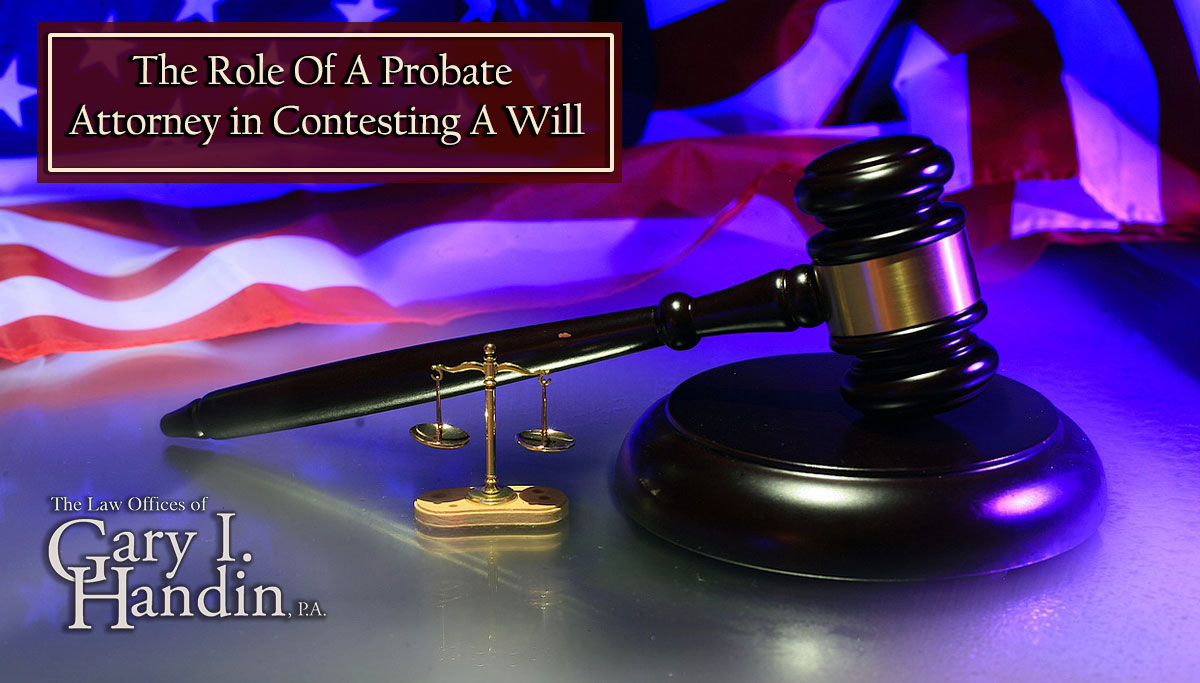
Contesting a will can be a long, complicated, and sometimes expensive process – not to mention that it can be emotionally exhausting for all parties involved. Whether you are a Personal Representative of a deceased estate or a family member who believes that your loved one was unduly influenced in executing their will, having an outstanding probate attorney is crucial to your case. To appreciate why the expertise of a probate attorney is so important, it’s necessary to first unpack the basics of the probate process.
What is Probate?
Under Florida law, if a person owns any assets in their own name at the time of their passing, a probate process will need to be completed for their assets to be distributed to their beneficiaries. When a person dies with a will, then probate involves both the verification of the will and the distribution of the deceased’s assets in terms of the will. During probate, the validity of the deceased’s will may be challenged in probate court. This is called a “contested probate.” While the services of a probate attorney are usually necessary even for uncontested probate proceedings, they are critical for contested probate.
On What Grounds Can a Will Be Challenged?
There are three general grounds upon which a will can be contested. The first is improper execution. Under Florida estate law, a will must be executed in a particular way: there are special requirements relating to how the will must be signed and witnessed. If the will is not executed according to these special requirements, it may be set aside as invalid. The second ground is incapacity: if the testator was not of sound mind when they executed the will, the will may be challenged on this basis. The third ground is undue influence. If a family member or other interested person unduly influenced or coerced the testator into changing their will or including certain bequests in their will, the will may be set aside.
When is a Will Contested?
If you are considering contesting a will, it is vital you seek the legal advice of a probate attorney immediately, as you only have a limited period within which to challenge the will. Usually, a will can only be contested within the first 90 days after creditors and beneficiaries have been provided with notice that the deceased’s will has been filed. Once these 90 days have passed, the will can no longer be contested, except in cases involving unlawful activity (e.g. undue influence).
What Do Contested Probate Proceedings Involve?
If a will is challenged on any of the above grounds, the person who brings the challenge will need to adduce sufficient evidence to prove their case. Each ground requires certain facts to be proved. For example, in relation to capacity, it must be shown that the testator lacked the capacity to such an extent that they did not know what they were doing when they executed the will and that they lacked awareness of their assets and their family.
There are certain standards of proof that need to be met for a will to be declared invalid. This is where the skills of a good probate attorney are invaluable. They will assess the merits of your case and provide you with a preliminary assessment of whether there are grounds to challenge the will. They will also consider whether you have ‘standing’ to challenge the will, as only certain persons are permitted to contest a will. Generally, these are the Personal Representative and the parties who would have automatically inherited from the deceased had they died without a will e.g. the deceased’s spouse or children.
The Vital Role of a Probate Attorney
Having excellent legal representation is key to every stage of contested probate. Your probate attorney will prepare the necessary evidence to demonstrate that you have established a ground for setting aside the will. They will also prepare legal arguments to support the evidence and persuade the court that the threshold of proof has been met.
A good attorney will also pre-empt the questions and counter-arguments likely to be presented by the opposing party who is arguing that the will is valid (this may be the Personal Representative or another beneficiary).
Probate law is very complex, and your attorney should have a deep and up-to-date knowledge of all of the legal procedures and requirements.
Your attorney will play an important role in any mediation, negotiation, or settlement process. Often, contested probate cases do not go to trial, and the parties reach a settlement of all claims before pursuing formal litigation. A skilled lawyer will be a firm but reasonable negotiator and will ensure that your best interests are always represented.
A Probate Attorney You Can Trust
At The Law Offices of Gary I. Handin, P.A., we have decades of experience in the field of probate law and have represented numerous clients in contested probate proceedings. If you are considering contesting a will, or need the services of a probate attorney for any other reason, don’t hesitate to contact us at 1-877-815-4560.





